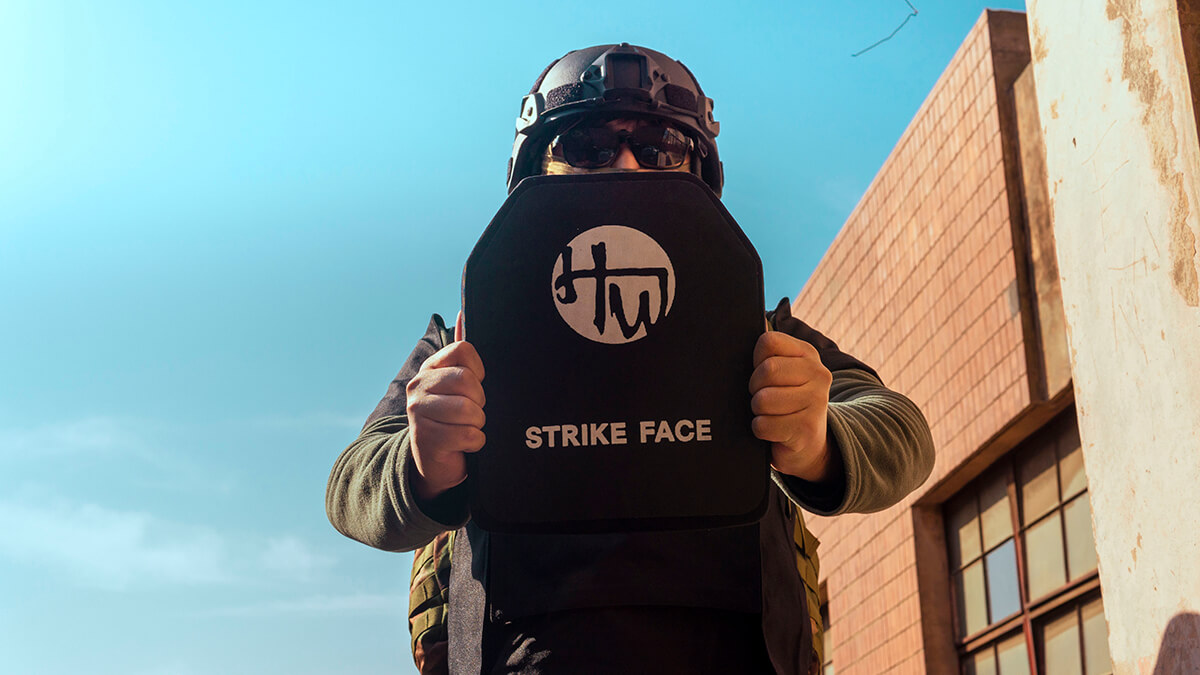 Understanding the legality of owning and wearing body armor is essential for staying compliant with the law. In the United States, federal law permits civilians to purchase and use body armor, but state-specific restrictions can complicate matters. For example, some states impose limitations that raise the question, is it illegal to wear a bulletproof vest in public? These laws aim to balance public safety with individual rights. As a law-abiding citizen, knowing whether is body armor legal in your region helps you avoid legal trouble and ensures responsible use. Staying informed protects both your safety and your freedom.
Understanding the legality of owning and wearing body armor is essential for staying compliant with the law. In the United States, federal law permits civilians to purchase and use body armor, but state-specific restrictions can complicate matters. For example, some states impose limitations that raise the question, is it illegal to wear a bulletproof vest in public? These laws aim to balance public safety with individual rights. As a law-abiding citizen, knowing whether is body armor legal in your region helps you avoid legal trouble and ensures responsible use. Staying informed protects both your safety and your freedom.
Key Takeaways
- Understand that while federal law allows civilians to own body armor, state-specific regulations may impose additional restrictions.
- Always research local laws regarding body armor ownership and use to avoid legal complications and ensure compliance.
- Obtain necessary licenses or permits if required in your region, as some areas have strict regulations governing body armor.
- Use body armor responsibly and discreetly to prevent misunderstandings and legal issues, especially in public spaces.
- Stay informed about changes in body armor laws by monitoring official government websites and subscribing to legal updates.
- When traveling with body armor, ensure you comply with both domestic and international regulations to avoid penalties.
- Remember that wearing body armor during the commission of a crime can lead to harsher penalties and additional charges.
General Overview of Body Armor Laws

What is body armor, and why is it regulated?
Body armor refers to protective clothing designed to absorb or deflect physical attacks, particularly gunfire. It includes items like bulletproof vests, ballistic plates, and stab-resistant gear. The primary purpose of body armor is to safeguard individuals in high-risk situations, such as law enforcement officers, security personnel, or civilians in dangerous environments.
However, body armor is not just a tool for protection. Governments regulate it to prevent misuse and ensure public safety. For instance, Federal Law 18 U.S.C. 931 defines body armor as protective gear against gunfire and imposes restrictions on its possession by individuals with felony convictions. This legislation highlights the balance between personal safety and societal concerns. By regulating body armor, authorities aim to prevent its use in criminal activities while allowing law-abiding citizens to access it responsibly.
Common reasons for body armor restrictions
Public safety concerns
Public safety remains a significant factor behind body armor laws. Authorities worry that unrestricted access to body armor could embolden criminals, making them harder to apprehend during violent incidents. For example, during armed robberies or mass shootings, perpetrators wearing body armor can resist law enforcement efforts, prolonging dangerous situations. These concerns have led to stricter regulations in some regions, ensuring that body armor does not compromise public safety.
Criminal misuse of body armor
Criminals have exploited body armor to evade law enforcement, prompting governments to impose restrictions. For instance, many states in the U.S. prohibit wearing body armor during the commission of a crime. State-Specific Regulations on Body Armor explicitly address this issue, aiming to deter offenders from using protective gear to gain an unfair advantage. These laws send a clear message: body armor should not shield individuals from accountability for illegal actions.
General legal principles for body armor ownership and use
Body armor laws vary across jurisdictions, but some general principles apply universally. First, most regions allow civilians to own body armor, provided they meet specific criteria. For example, in the United States, federal law permits ownership unless you have a felony conviction. Second, some states, like New York and Connecticut, impose additional restrictions, such as requiring permits or banning sales to civilians altogether.
Internationally, regulations differ. In Canada, provincial laws govern body armor ownership, with some provinces requiring licenses. Similarly, arms regulations in Europe and Australia classify certain types of body armor as restricted items, necessitating permits for purchase or use. These principles emphasize the importance of understanding local laws before acquiring body armor. Compliance ensures you avoid legal complications while exercising your right to personal protection.
Regional Regulations on Body Armor Laws

United States
Federal laws on body armor ownership
In the United States, federal law under 18 U.S.C. Section 931 governs body armor ownership. This legislation allows most civilians to purchase and possess body armor. However, it prohibits individuals with felony convictions from owning or using it. The law aims to prevent misuse while ensuring that law-abiding citizens can access protective gear for personal safety. Federal regulations also classify certain types of body armor under arms regulations, restricting their export without proper licensing. Understanding these federal guidelines is crucial if you plan to own or transport body armor across state lines.
State-specific restrictions (e.g., New York, Connecticut)
State-specific laws add another layer of complexity to body armor regulations. For instance, New York imposes strict restrictions on body armor sales and use. Civilians cannot purchase body armor unless they meet specific exemptions, such as working in law enforcement or security. Connecticut also requires individuals to buy body armor in person, banning online sales entirely. These state-specific laws reflect concerns about public safety and criminal misuse. Therefore, it’s crucial to familiarize yourself with the unique requirements of your state or any state you plan to travel to, in order to avoid legal complications. For a comprehensive overview of state-specific body armor laws, including detailed information on restrictions and exemptions, you can consult resources like the “Body Armor Laws by State 2024” guide available at World Population Review.
Is it illegal to wear a bulletproof vest in public in certain states?
The legality of wearing a bulletproof vest in public varies by state. In most states, wearing body armor in public is legal. However, some states impose restrictions during specific circumstances. For example, many states, including California and New York, make it illegal to wear body armor while committing a crime. This rule deters criminals from using protective gear to evade law enforcement. If you wonder, is it illegal to wear a bulletproof vest in public, the answer depends on your location and intent. Always check local laws before wearing body armor in public spaces, and remember legality can change, so staying informed is key.
Europe
Overview of EU regulations
In Europe, body armor regulations differ significantly across countries. The European Union does not have a unified policy on body armor, leaving individual nations to establish their own rules. Some EU countries classify body armor as restricted items under arms regulations, requiring permits for purchase or use. These regulations aim to balance personal safety with public security concerns. If you plan to acquire or transport body armor within the EU, understanding each country’s specific requirements is essential.
Country-specific laws (e.g., United Kingdom, Germany, France)
European countries enforce varying laws regarding body armor possession and use. In the United Kingdom, civilians can legally own body armor, but certain types, such as stab-resistant vests, may require justification for use. Germany allows body armor ownership but restricts its use in public demonstrations or protests. France imposes stricter controls, requiring permits for high-grade ballistic vests. These country-specific laws highlight the importance of researching local regulations before purchasing or wearing body armor in Europe.
Canada
Provincial regulations on body armor ownership
Canada’s body armor laws are governed at the provincial level. Most provinces allow civilians to own body armor, but some impose additional restrictions. For example, British Columbia and Alberta require individuals to obtain a license to purchase or possess body armor. These licenses ensure that only eligible individuals, such as security professionals or law-abiding citizens, can access protective gear. If you ask, can you wear body armor in Canada, the answer depends on the province and whether you meet the licensing requirements.
Licensing requirements in certain provinces
In provinces like Manitoba and Nova Scotia, licensing requirements for body armor ownership are less stringent. However, in British Columbia, you must apply for a permit through the provincial government. The application process often involves background checks to confirm your eligibility. These licensing systems aim to prevent misuse while allowing responsible individuals to own body armor legally. Before purchasing body armor in Canada, check your province’s specific regulations to ensure compliance.
Other Regions
Body armor laws in Australia
Australia enforces strict regulations on body armor ownership and use. The country classifies certain types of body armor as prohibited weapons under its arms regulations. This classification means that owning or purchasing body armor often requires a special permit. Each state and territory in Australia has its own rules, which can vary significantly. For example, in Victoria and New South Wales, you must obtain a license to possess body armor. These licenses are typically issued to individuals with legitimate needs, such as security professionals or law enforcement personnel.
If you plan to travel to Australia with body armor, you should exercise caution. Customs officials may confiscate body armor if you lack the necessary permits. Additionally, attempting to import body armor without proper documentation can lead to legal penalties. To avoid complications, always check the specific requirements of the state or territory you intend to visit.
Regulations in Asia and the Middle East
In Asia, body armor laws differ widely across countries. Some nations, like Japan, impose strict controls on body armor ownership. In Japan, civilians must provide a valid reason for possessing body armor, and authorities may deny requests if they deem the justification insufficient. Similarly, South Korea requires permits for high-grade ballistic vests, reflecting concerns about public safety and potential misuse.
The Middle East presents a more complex landscape. In countries like Israel, body armor is widely available due to ongoing security concerns. Civilians can purchase and wear body armor without significant restrictions. However, in other Middle Eastern nations, such as Saudi Arabia and the United Arab Emirates, regulations are stricter. These countries often require government approval for body armor ownership, particularly for advanced ballistic gear.
When traveling to Asia or the Middle East with body armor, you must research the specific laws of your destination. Many countries in these regions view body armor as a controlled item, and violating local regulations can result in severe consequences. Always ensure compliance by consulting official government resources or legal experts before transporting body armor internationally.
Guidelines for Traveling with Body Armor

Domestic transportation
Carrying body armor within your country
When you travel with body armor domestically, understanding local laws is essential. In most U.S. states, carrying body armor is legal for civilians. However, some states impose restrictions. For example, New York prohibits the purchase of body armor by civilians unless they meet specific exemptions. Connecticut bans online sales, requiring in-person purchases. These laws aim to prevent misuse while ensuring public safety.
To avoid legal issues, always transport body armor discreetly. Keep it stored in a bag or case rather than wearing it in public spaces. This approach minimizes unnecessary attention and ensures compliance with local regulations. If you plan to move across state lines, research the specific requirements of your destination. Some states may have stricter rules regarding possession or use.
Compliance with local laws during travel
Local laws vary widely, even within the same country. For instance, California allows civilians to own body armor but prohibits its use during criminal activities. Violating these laws can lead to severe penalties, including fines or imprisonment. Before traveling, check the regulations of each state or region you will visit. Many government websites provide detailed information about body armor laws.
If you are unsure about specific rules, consult legal experts or law enforcement officials. They can clarify any ambiguities and help you navigate complex regulations. Staying informed ensures that you remain compliant and avoid potential legal complications.
International transportation
Airline policies on body armor
Airlines have strict policies regarding the transportation of body armor. Most carriers allow you to include body armor in checked luggage, but some may restrict it in carry-on bags. Before your flight, review the airline’s guidelines to ensure compliance. Contact the airline directly if their policies are unclear.
When packing body armor, ensure it is securely stored to prevent damage during transit. Use a durable case or protective covering. Labeling the item as “protective equipment” can also help avoid misunderstandings during security checks. Always declare body armor if required by the airline or airport authorities.
Customs and import/export restrictions
International travel with body armor involves navigating customs and export control laws. Many countries classify body armor as a controlled item. For example, Australia requires permits for importing or possessing body armor. Violating these regulations can result in confiscation or legal penalties.
Before traveling, research the import/export laws of your destination. Some countries, like Japan, demand valid justification for possessing body armor. Others, such as Saudi Arabia, require government approval. Always carry documentation, such as purchase receipts or permits, to prove the legality of your body armor. This preparation minimizes delays and ensures smooth customs clearance.
Tips for avoiding legal issues while traveling with body armor
- Research thoroughly: Understand the laws and regulations of your destination before traveling. Use official government websites or consult legal experts for accurate information.
- Obtain necessary permits: If your destination requires permits for body armor, apply well in advance. Ensure all documentation is complete and up-to-date.
- Pack responsibly: Store body armor securely in your luggage. Avoid wearing it in public spaces to prevent unnecessary attention or suspicion.
- Declare when required: Always declare body armor at customs or airport security if regulations mandate it. Transparency reduces the risk of legal complications.
- Stay updated: Laws and regulations can change frequently. Regularly check for updates to ensure ongoing compliance.
By following these guidelines, you can travel with body armor safely and legally. Preparation and awareness are key to avoiding legal issues and ensuring a hassle-free journey.
Practical Tips for Compliance with Body Armor Laws

Researching local laws before purchasing or using body armor
Understanding the legal landscape is the first step to ensuring compliance with body armor laws. Each region has unique regulations that govern the purchase and use of body armor. For example, in the United States, federal legislation permits most civilians to purchase and possess body armor, but state-specific restrictions can complicate matters. States like New York and Connecticut impose stricter rules, such as requiring in-person purchases or banning sales to civilians without exemptions.
Before acquiring body armor, you should thoroughly research the local laws in your area. Start by visiting official government websites or consulting legal experts. These resources provide accurate and up-to-date information about what is allowed and what is prohibited. If you plan to travel with body armor, extend your research to include the laws of your destination and any regions you may transit through. This proactive approach minimizes the risk of legal complications and ensures you remain within the boundaries of the law.
Obtaining necessary licenses or permits
In some regions, owning or using body armor requires a license or permit. For instance, provinces in Canada like British Columbia and Alberta mandate licensing for civilians who wish to purchase or possess body armor. Similarly, countries such as Australia classify certain types of body armor as restricted items, necessitating permits for ownership. These requirements aim to prevent misuse while allowing responsible individuals to access protective gear.
To obtain a license, you typically need to complete an application process. This process often involves background checks to verify your eligibility. You may also need to provide documentation, such as proof of employment in a high-risk profession or a valid reason for needing body armor. Ensure you gather all required materials and submit them promptly to avoid delays. By securing the necessary permits, you demonstrate your commitment to legal compliance and responsible ownership.
Responsible use of body armor to avoid legal complications
Owning body armor comes with the responsibility of using it appropriately. Misuse can lead to severe legal consequences, even if you acquired the gear legally. For example, many jurisdictions prohibit wearing body armor during the commission of a crime. Violating this rule can result in additional charges and penalties.
To avoid misunderstandings, always use body armor in a manner consistent with its intended purpose. If you wear it in public, do so discreetly to prevent unnecessary attention or alarm. When traveling, pack your body armor securely and declare it at customs if required. Transparency and responsible behavior not only help you comply with body armor laws but also promote public trust in the legal use of protective equipment.
By following these practical tips, you can navigate the complexities of body armor regulations with confidence. Staying informed, obtaining the necessary permits, and using body armor responsibly are key steps toward ensuring legal compliance and personal safety.
Staying updated on changes in body armor regulations
Body armor laws and regulations evolve frequently, reflecting shifts in public safety concerns and government policies. Staying informed about these changes is essential to ensure compliance and avoid legal complications. Here are practical ways to keep yourself updated:
-
Monitor Official Government Websites
Government websites often provide the most reliable and up-to-date information on body armor laws. For example, in the United States, federal and state government portals outline specific regulations, such as whether is body armor legal in New York State or is body armor legal in California. These platforms also announce amendments or new legislation. Bookmarking these sites and checking them regularly can help you stay ahead of any changes.
-
Subscribe to Legal Newsletters or Alerts
Many legal organizations and advocacy groups offer newsletters or alerts that focus on changes in laws, including those related to body armor. Subscribing to these services ensures you receive timely updates directly in your inbox. For instance, if a state introduces a ban on body armor, you’ll be among the first to know. This proactive approach helps you adapt quickly to new requirements.
-
Join Online Forums and Communities
Online forums and communities dedicated to personal protection or law enforcement often discuss updates in body armor regulations. Members share experiences, insights, and news about legal changes. Participating in these discussions can provide valuable context and practical advice. However, always verify information from these sources with official channels to ensure accuracy.
-
Consult Legal Experts
Legal professionals specializing in firearms or protective gear laws can offer tailored advice. They can clarify complex regulations, such as is it illegal to wear a bulletproof vest in public or are bulletproof vests legal in specific regions. Regular consultations with legal experts ensure you remain compliant, especially if you travel frequently or live in areas with strict body armor laws.
-
Use Mobile Apps for Legal Updates
Several mobile apps provide real-time updates on laws and regulations. These apps often include features like location-based alerts, which notify you of relevant laws in your area. For example, if you travel to Canada, an app might inform you about provincial licensing requirements, answering questions like can you wear body armor in Canada.
-
Follow Industry News and Publications
Publications focused on security, law enforcement, or personal protection often report on changes in body armor laws. These articles not only highlight new regulations but also analyze their implications. Reading industry news keeps you informed and helps you understand the broader context of legal changes.
-
Stay Connected with Manufacturers and Retailers
Body armor manufacturers and retailers often update their customers about legal changes affecting their products. Many include disclaimers or notices about restrictions, such as is it illegal to own a bulletproof vest in certain states. Signing up for their newsletters or following them on social media can provide timely updates.
-
Regularly Review Your Compliance
Laws can change without widespread publicity. Periodically reviewing your compliance ensures you remain within legal boundaries. For example, if you own body armor, confirm that your possession and use align with current laws. This habit minimizes risks and reinforces responsible ownership.
Key Takeaway: Staying informed about body armor regulations requires a combination of proactive research, reliable resources, and regular reviews. By adopting these strategies, you can navigate legal complexities confidently and responsibly.
Owning, wearing, and transporting body armor comes with significant legal responsibilities. Understanding whether is body armor legal in your region ensures you stay compliant and avoid penalties. For instance, some states and countries impose restrictions, raising questions like is it illegal to wear a bulletproof vest in public. Staying informed about body armor laws helps you navigate these complexities confidently. Always research local regulations, secure necessary permits, and use body armor responsibly. By doing so, you protect your safety while respecting the law. Responsible ownership fosters trust and ensures your actions align with legal standards.
FAQs About Body Armor Laws and Regulations
Is body armor legal for civilians?
Yes, body armor is generally legal for civilians in many countries, including the United States. Federal law permits most civilians to own and wear body armor unless they have a felony conviction. However, some states, like New York and Connecticut, impose additional restrictions. Always check your local laws to ensure compliance.
Is it illegal to wear a bulletproof vest in public?
In most places, wearing a bulletproof vest in public is legal. However, some states, such as California and New York, prohibit wearing body armor during the commission of a crime. This law aims to deter criminals from using protective gear to evade law enforcement. Always verify the regulations in your state or region before wearing body armor in public.
Which states is it illegal to have body armor in?
No state in the U.S. outright bans body armor ownership for law-abiding citizens. However, states like New York and Connecticut have stricter rules. For example, New York restricts civilian purchases of body armor unless specific exemptions apply. Connecticut requires in-person purchases and bans online sales. Research your state’s laws to avoid legal issues.
Can you wear body armor in Canada?
Yes, you can wear body armor in Canada, but the rules vary by province. Provinces like British Columbia and Alberta require a license to own or wear body armor. Other provinces, such as Manitoba, have fewer restrictions. Always check the specific regulations in your province to ensure compliance.
Are bulletproof vests legal in Europe?
Bulletproof vests are legal in many European countries, but regulations differ. For example, the United Kingdom allows civilians to own body armor, while France requires permits for high-grade ballistic vests. Germany restricts the use of body armor in public demonstrations. Research the laws of the specific country you are in to avoid complications.
Can you wear a bulletproof vest in public?
It depends on the country. In America (e.g., California), civilians without felony convictions can legally wear bulletproof vests in public. In other countries, such as China, civilians are not allowed to wear body armor with military or police markings. Even where it’s legal, wearing a bulletproof vest in public—especially in schools, government buildings, or large gatherings—can cause public concern and may lead to police questioning. Always check your local laws and consider the social context.
Is it illegal to own a bulletproof vest if you have a felony conviction?
Yes, in the United States, federal law prohibits individuals with felony convictions from owning or possessing body armor. This restriction aims to prevent misuse and enhance public safety. Violating this law can result in severe penalties, including imprisonment.
Are there any bans on body armor?
Some regions impose partial bans or restrictions on body armor. For instance, New York has a ban on body armor sales to civilians unless they meet specific exemptions. Internationally, countries like Australia classify certain types of body armor as prohibited weapons, requiring permits for ownership. Always verify the rules in your area to stay compliant.
Is it legal to travel internationally with body armor?
Traveling internationally with body armor is legal in some cases, but you must follow the laws of both your departure and destination countries. Many nations classify body armor as a controlled item. For example, Australia requires permits for importing body armor, while Japan demands valid justification for possession. Research customs and import/export regulations before traveling.
What happens if I wear body armor during a crime?
Wearing body armor during a crime can lead to additional charges in many jurisdictions. For example, in the United States, several states, including California, impose harsher penalties for offenders who use body armor while committing a crime. This law discourages criminals from using protective gear to resist law enforcement.
How can I stay updated on body armor laws?
To stay informed, monitor official government websites, subscribe to legal newsletters, and consult legal experts. You can also follow industry news and join online communities focused on personal protection. Laws change frequently, so regular updates help you remain compliant and avoid legal issues.
